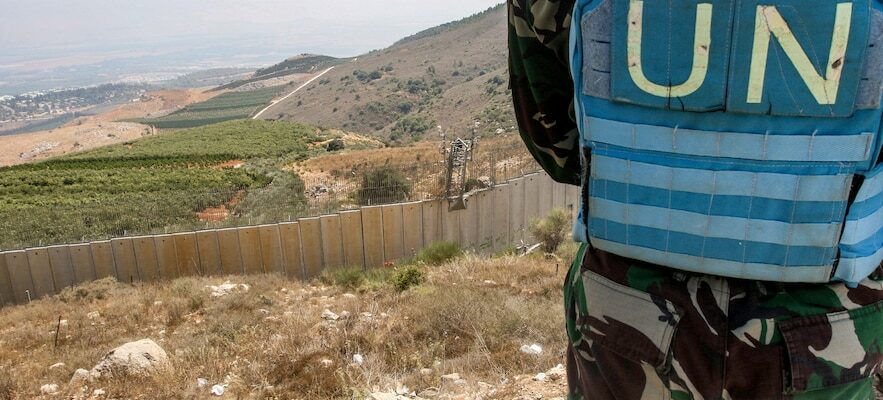The villages of southern Lebanon can no longer count on the arrival of white vehicles with blue helmet passengers to benefit from a lull in the war that Hezbollah and Israel have been waging for months. This entered a new phase on the evening of September 30 with the launch of “limited, localized and targeted” land operations, according to the Hebrew State, against “targets and infrastructure” of the Shiite militia. As the fighting intensifies, the United Nations Interim Force in Lebanon (UNIFIL), deployed along its border, has given up its patrols and remains confined to its bases and observation posts.
At the forefront of this escalation between Israeli forces and those of Hezbollah is UNIFIL, installed in 1978 to act as a buffer against Israel, once again reduced to its powerlessness. At the end of the 2006 conflict between Israel and Hezbollah, United Nations Resolution 1701 established that it was the only force to be deployed, with the Lebanese army, in southern Lebanon. This has never been the case, Hezbollah having continued to strengthen itself militarily over the years. And now, to avoid any fatal clashes for them with Israeli forces, the Lebanese soldiers have retreated towards the North.
“The Lebanese army is incapable of doing anything and was not big enough, while UNIFIL is not big enough to act as a buffer,” explains Héloïse Fayet, researcher at the French Institute of International Relations (Ifri). They can do checks, show themselves, but little more.” It has 10,000 peacekeepers of around fifty nationalities, responsible for recording hostile actions and intentions in the region, and reporting to the Lebanese army the places where weapons are stored so that it can seize them – an impossible mission to fulfill given the omnipotence of Hezbollah in the sector.
The deterrent effect of UN forces
The impotence of the mission is regularly pointed out by the Israelis. “We learned the hard way that UNIFIL, whose mandate evolved after the 2006 operation, was a bad joke,” criticizes Yaakov Amidror, Benyamin Netanyahu’s national security advisor from 2011 to 2013. It did not even not stopped Iran from bringing weapons into the area.”
A UNIFIL soldier in Adaisseh near the border with Israel, August 30, 2022
© / afp.com/Mahmoud ZAYYAT
On the side of UNIFIL, we emphasize the interest, for civilian populations, of this UN presence, rarely targeted. But also the dissuasive effect it can have, the parties involved wishing to avoid the scandal that the death of these “peacekeepers” represented by the Blue Helmets would cause. But their room for maneuver is limited, because they have neither the means nor the necessary principal to intervene. At most, UNIFIL can maintain its bases in the event of a brutal escalation like the one that began on September 30, but only for a time – its autonomy is estimated at 40 days.
To quickly support the Blue Helmets distributed south of the Litani River in different bases and observation points, UNIFIL can only rely on its Force Commander Reserve (FCR), installed in a camp in Deir Kifa, around fifteen kilometers north of the Lebanese-Israeli border. It is provided by France, with nearly 600 soldiers reinforced by a contingent of around a hundred Finnish soldiers. Too little… The headquarters of UNIFIL is located on the coast, in Naqoura.
Residents of the UNIFIL mandate area fleeing the fighting could come and seek refuge in these different sites. UN forces could then have to evacuate them to the north. They could also have to evacuate in the face of the danger posed by the fighting. In this regard, the UN explained that it had an “emergency plan”. Its initiation would signify the final, but logical, failure of the interim force.
